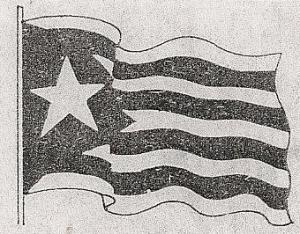Spotkanie Katalonia-Polska z Wójtem Ełku
Z udziałem
Pana Juli Carbó i Mulet w Ełku i Stradunach w dniach 19 i 20
grudnia 2012 roku odbyły się z
udziałem delegacji Stowarzyszenia Katalonia-Polska
następujące imprezy:
19-12-2012
Spotkanie
na temat produktów pochodzących z rejonu Katalonii w
restauracji Horteks w Ełku.
Program spotkania obejmował także :
- rozmowy na temat produkcji na rzecz firm katalońskich oraz sprzedaży produktów turystycznych (kempingi, przebieralnie, stojaki na rowery i nie tylko)
- pokaz możliwości i innowacji technologicznych wykorzystywanych przy produkcji jachtów, łódek, sprzętu wodnego produkowanego z laminatów
- dyskusję na temat współpracy i wymiany turystycznej Region Ełku-Katalonia
- spotkanie z dystrybutorami win Polski północno-wschodniej, rozmowy na temat współpracy, sprzedaży, form reklamy stoisk z produktami katalońskimi
- degustację produktów dostarczonych przez przedstawicieli Katalonii (Stowarzyszenie Katalonia-Polskapod przewodnictwem Pana Juli Carbó i Mulet)
- degustację wyrobów cukierniczych miejscowego producenta.
20-12-2012
W trakcie
spotkania roboczego z Panem Antonim
Polkowskim – Wójtem Gminy Ełk
dyskutowano na temat współpracy i wymiany
gospodarczo-kulturalnej (między innymi organizacji dni
katalońskich w Ełku). Delegacja Stowarzyszenia Katalonia
Polska uczestniczyła także w spotkaniu wigilijnym z Władzami
Gminy Ełk, przedstawicielami Kurii biskupiej w Ełku (w
osobie Ks.
Biskupa Romualda Kamińskiego) i ełckimi
przedsiębiorcami, które odbyło się w Stradunach.
els dies 19 i 20 desembre 2012 es va dur a terme amb la participac
Potem
polski
Un
pas mes endavant. Ara els ciutadans d’aquesta zona
coneixen una mica millor Catalunya de la mà dels Catalans.
Catalunya
convidada d’honor a Ełk. L’alcalde va saludar en català
als representants del Casal Català de Polònia .
Amb la
participació del Sr Juli Carbó i Mulet
a Elk Straduny i en els dies 19 i 20
desembre 2012 es va dur a terme
amb la participació de la delegació de l'Associació de
Catalunya-Polònia dels següents esdeveniments:
2012.12.19
. Reunió sobre els productes
procedents de Catalunya, en un restaurant en Horteks Elk
agenda de la reunió també s'inclouen:
- parlar sobre el negoci de producció i venda del turisme català (càmping, vestuaris, graelles per a bicicletes i molt més)
- demostració de les capacitats i la innovació tecnològica utilitzat en la fabricació de iots, llanxes, equip per a esports aquàtics a partir de laminats
- un debat sobre la cooperació turística i l'intercanvi de Elk-regió de Catalunya
- Reunió amb els distribuïdors de vi al nord-est de Polònia, parla de la col · laboració, les vendes, les formes de publicitat estands de productes català
- productes de tast proporcionada pels representants de Catalunya ( Catalunya-Polònia Associació sota la direcció del Sr Juli Carbó i Mulet )
- Degustació del fabricant de confiteria local.
agenda de la reunió també s'inclouen:
- parlar sobre el negoci de producció i venda del turisme català (càmping, vestuaris, graelles per a bicicletes i molt més)
- demostració de les capacitats i la innovació tecnològica utilitzat en la fabricació de iots, llanxes, equip per a esports aquàtics a partir de laminats
- un debat sobre la cooperació turística i l'intercanvi de Elk-regió de Catalunya
- Reunió amb els distribuïdors de vi al nord-est de Polònia, parla de la col · laboració, les vendes, les formes de publicitat estands de productes català
- productes de tast proporcionada pels representants de Catalunya ( Catalunya-Polònia Associació sota la direcció del Sr Juli Carbó i Mulet )
- Degustació del fabricant de confiteria local.
2012.12.20
Durant la reunió de treball amb
el Sr Anthony
Polkowskim - Alcalde de Elk discutir la
cooperació i l'intercanvi dels drets econòmics i culturals
(inclosa l'organització de dies de Elk català). La delegació de
l'Associació de Catalunya Polònia també va participar en la
reunió dels òrgans de govern dels municipis Nadal ants, els
representants de la Cúria bisbe de Elk (en la persona del Pare.
Kaminski Romuald bisbe ) i els empresaris
ełckimi, celebrada a Straduny.
Aquí hi ha les fotos de
l'esdeveniment:
Mes informació pitgeu el
link:
Gracies als companys d’Elk per
l’organització de la trobada









 La
recent intervenció del rei Juan Carlos I davant l’Assemblea General de
l’ONU, lamentant la situació colonial de Gibraltar, té el seu origen en
el Tractat d’Utrecht (1713), amb motiu de la Guerra de Successió.
La
recent intervenció del rei Juan Carlos I davant l’Assemblea General de
l’ONU, lamentant la situació colonial de Gibraltar, té el seu origen en
el Tractat d’Utrecht (1713), amb motiu de la Guerra de Successió.







